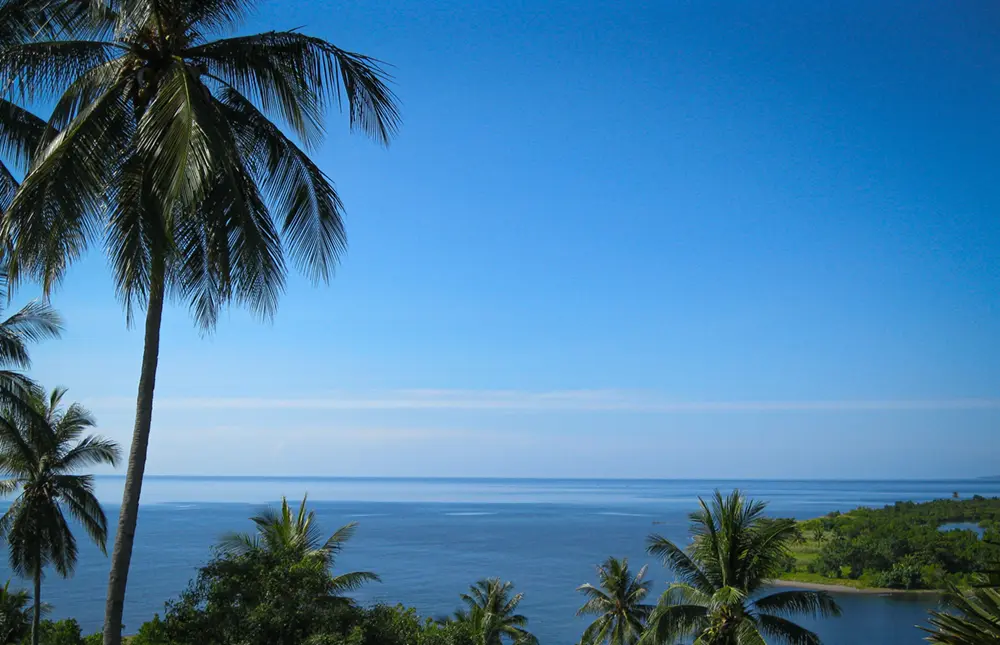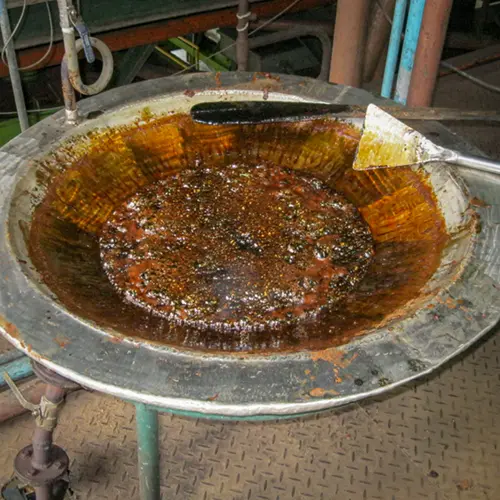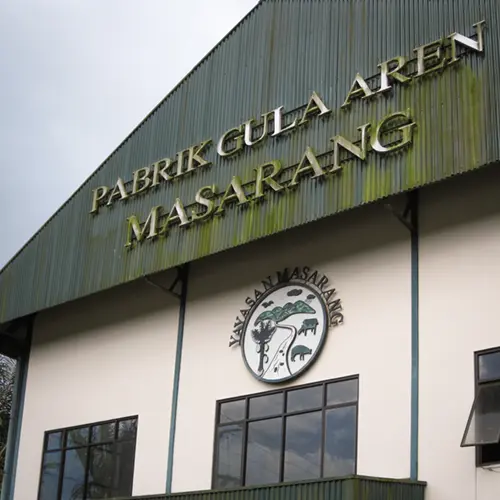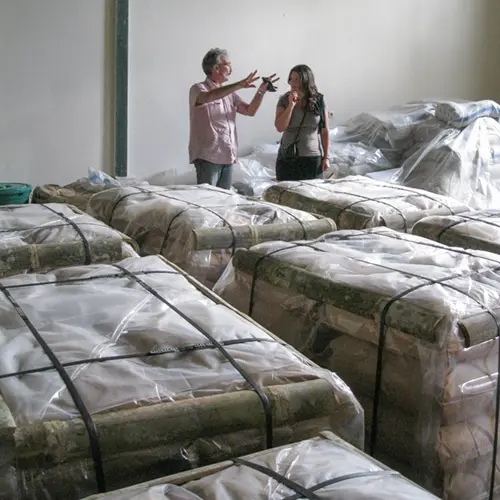Want to know what bean-to-bar chocolate is, how it is made and much more?
Read all about sustainable chocolate in our blogs.
Home " Chocolate as remedy for deforestation in Indonesia

Sharing:
In 2013, I had the opportunity to visit North Sulawesi in Indonesia. An invitation from my travel companion's family led me to this tropical region, where I had the opportunity to tour a palm sugar factory. Although I did not know exactly what to expect, I was curious about the process and the people behind it. Never could I have imagined that I would discover that chocolate with palm sugar is a cure for deforestation in Indonesia.

Arriving in North Sulawesi felt like travelling back in time. We drove through streets where horse-drawn carriages were a normal means of transport, waving schoolchildren in uniform greeted us and a Holland Bakery recalled colonial times. The landscape was a wealth of greenery, with tropical flowers and plants filling the rainforest. But this idyllic setting could not disguise the fact that deforestation was a major problem in Indonesia. Every year, an area the size of Belgium is cleared, with serious consequences such as floods, fires, food shortages and a decline in biodiversity. Moreover, the habitat of animals such as the orang-utan, one of the world's most endangered species, is being destroyed.
Masarang Foundation, a local organisation, is working to reverse this trend. They have discovered that the sugar palm can play a key role in combating deforestation. This palm only grows in the shade of the tropical rainforest, which means that farmers who grow sugar palm must keep the rainforest intact. This allows farmers to earn a sustainable income without damaging the rainforest. The sap of the sugar palm is used to make palm sugar, a profitable and fair product that supports local communities.



During my visit to the palm sugar factory, the Village Hub, I got an insight into this sustainable process. The Village Hub is a mini factory where sugar is produced from the sap of the sugar palm. The production process is completely waste-free; every residual product is reused for another process in the same chain. The palm sugar produced here is exported directly to the Netherlands, where it is used in various food products, including chocolate.
One of the chocolate makers using palm sugar for their chocolate is Mesjokke. They discovered that palm sugar is a delicious addition to chocolate, giving it a unique caramel-like flavour. In both the Natural Blonde- if the Stardust-variants of their chocolate, this palm sugar is used. This not only makes the chocolate delicious, but also more sustainable, as the use of palm sugar helps to preserve the rainforest in Indonesia.
Palm sugar offers more than just durability. Compared to granulated sugar, it has a lower impact on blood sugar levels and contains extra vitamins, minerals and antioxidants that benefit the body. But it is still sugar, so use it in moderation.
So when you enjoy Mesjokke's Natural Blonde or Stardust variants, you are not only contributing to your own well-being, but also supporting local farmers and rainforest conservation. The fact that you are contributing to the welfare of endangered species like the orang-utan makes chocolate no longer a guilty pleasure, but a way to do something positive.
The story of palm sugar and chocolate is an inspiring example of how we can enjoy our favourite treats in a sustainable way. My trip to Indonesia left a lasting impression. I saw the beauty of our planet, but also how fragile it is and how important it is to take care of nature and all its inhabitants.
So the next time you fancy chocolate, think about the positive impact you can have. By making a conscious choice, you contribute to a better future for both people and nature. Chocolate with palm sugar is a remedy for deforestation in Indonesia, and it tastes just that little bit sweeter.

Want to know what bean-to-bar chocolate is, how it is made and much more?
Read all about sustainable chocolate in our blogs.